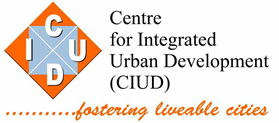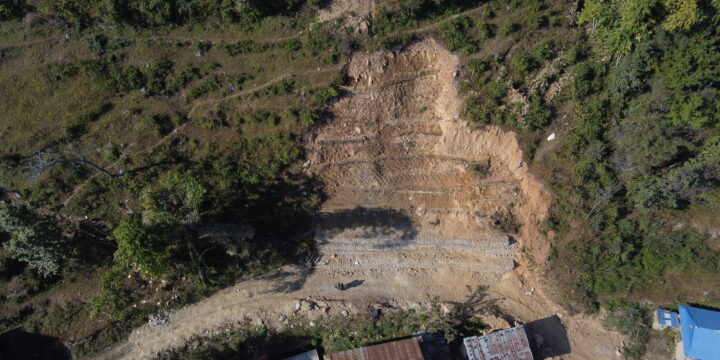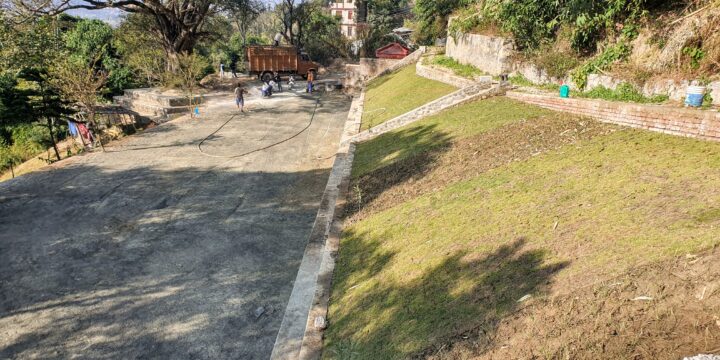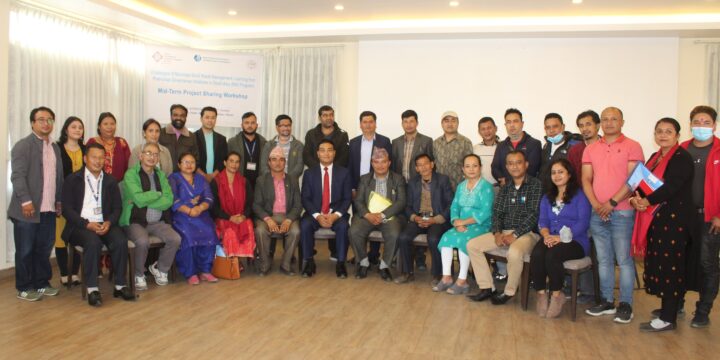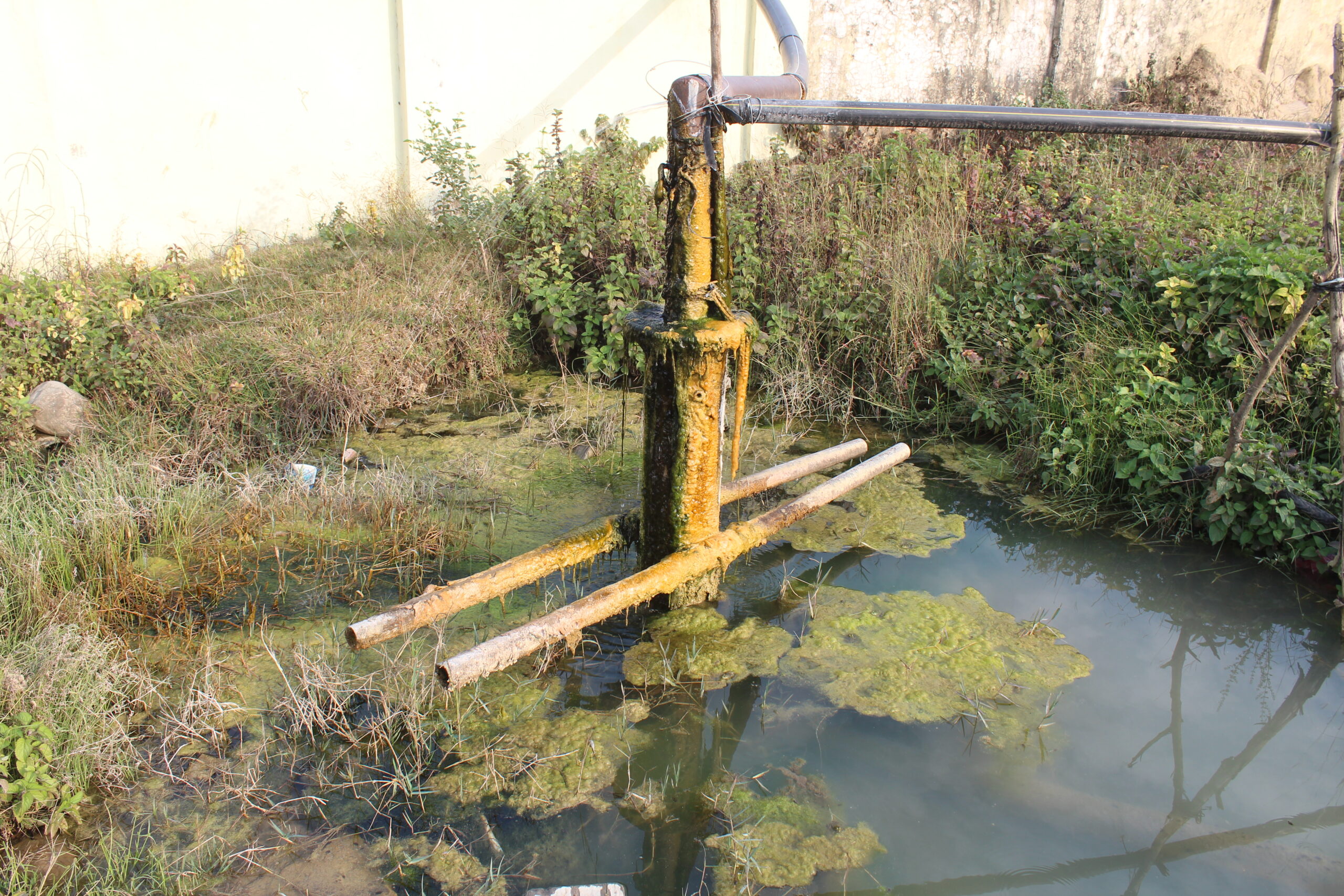
Why Asset Management is important to solve water systems’ problems in the development context
Does world-wide water infrastructure coverage fulfil the Sustainable Development Goal (SDG) 6: “Ensure access to water and sanitation to all”? It would be great to answer this question with a confident ‘yes’ and considering the institutional efforts made and the increase in the number of water systems, we should be celebrating our progress towards this SDG. However, it is not that simple. When a water system is built, ongoing efforts are required to keep water flowing. For example, the latest reports (2014) from Nepal show that only 50% of the water systems in country are functioning well [1]. This implies that most people in rural areas still do not have access to this vital liquid, or face serious constraints. For example, receiving water only for a limited number of hours per…
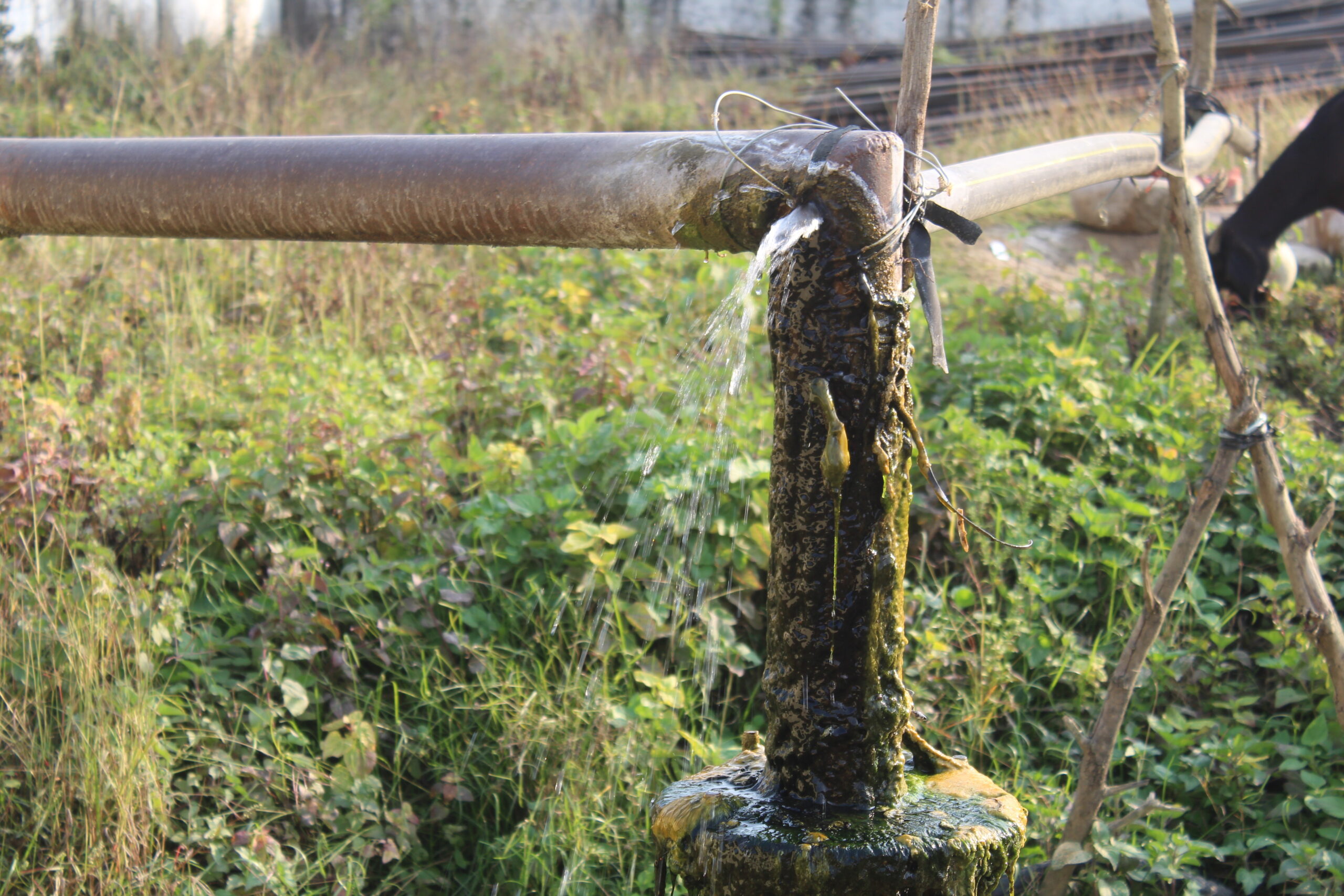
When water systems break down
Why Asset Management is important to solve water systems’ problems in the development context Does world-wide water infrastructure coverage fulfil the Sustainable Development Goal (SDG) 6: “Ensure access to water and sanitation to all”? It would be great to answer this question with a confident ‘yes’ and considering the institutional efforts made and the increase in the number of water systems, we should be celebrating our progress towards this SDG. However, it is not that simple. When a water system is built, ongoing efforts are required to keep water flowing. For example, the latest reports (2014) from Nepal show that only 50% of the water systems in country are functioning well [1]. This implies that most people in rural areas still do not have access to this vital liquid, or face…
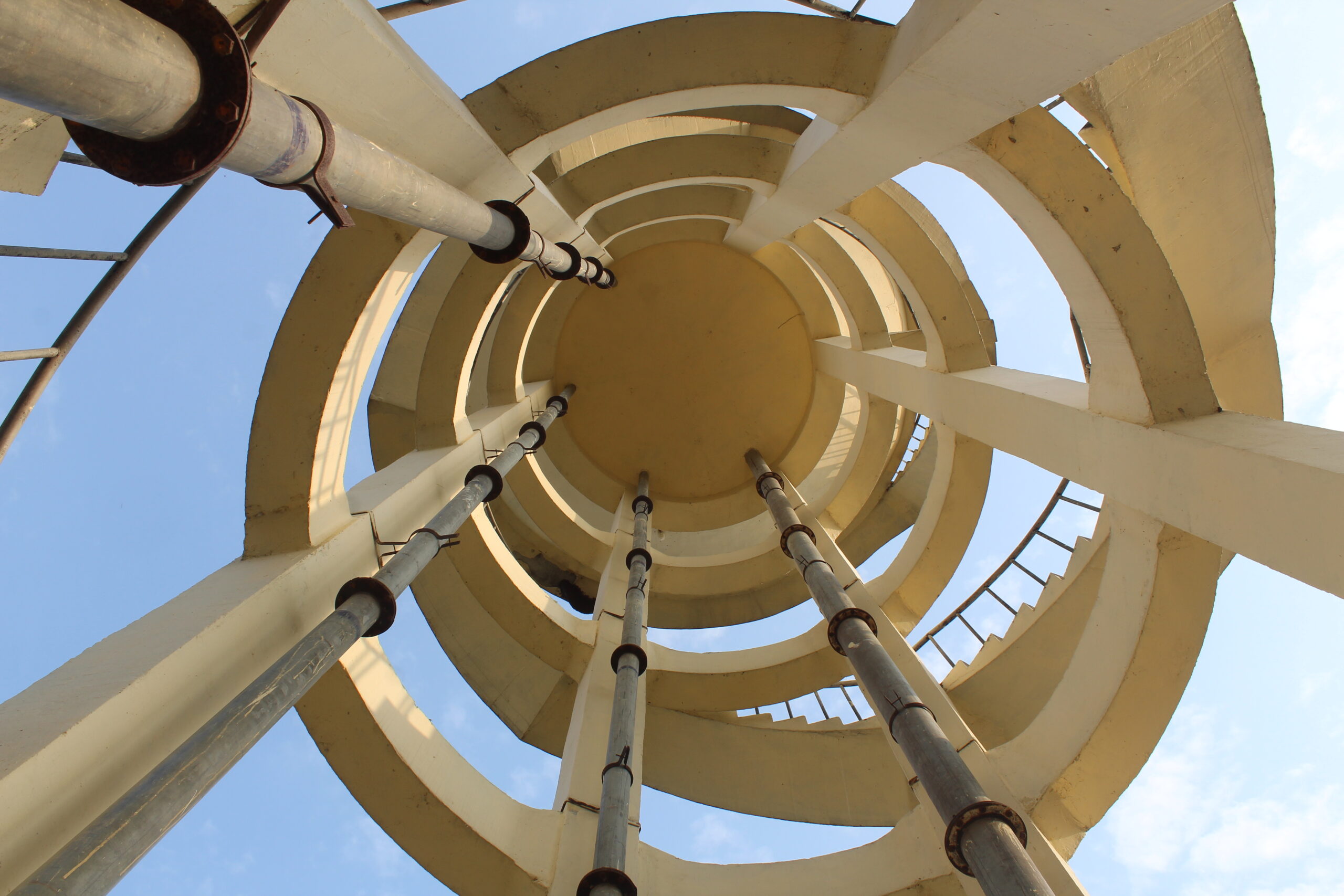
विकास सन्दर्भमा खानेपानी प्रणालीका समस्याहरू समाधान गर्न किन सम्पत्ति व्यवस्थापन (एसेट म्यानेजमेन्ट) महत्त्वपूर्ण छ
के विश्वभरि बनेका खानेपानीका आधारभूत संरचनाहरुले दिगो विकास लक्ष्य (SDG) ६: "सबैकालागि स्वच्छ पानी सरसफाइको उपलब्धता तथा दिगो व्यवस्थापन सुनिश्चित र सरसफाइको पहुँच सुनिश्चित गर्ने” पूरा गर्छ? यस प्रश्नको जवाफ ढुक्कका साथ 'हो' भनेर दिनु ठूलो कुरा हुनेछ र संस्थागत प्रयास र खानेपानी योजनाको संख्यामा भएको वृद्धिलाई ध्यानमा राख्दै हामीले यस दिगो विकासका लक्ष्यतर्फ भएको प्रगतिमा उत्सव मनाइरहनुपर्छ । तथापि, यो त्यति सजिलो कुरा होइन । जब खानेपानी योजना निर्माण हुन्छ, पानी संचालन भइरहनका लागि निरन्तर प्रयत्नको आवश्यक पर्दछ । उदाहरणका लागि, नेपालको पछिल्लो रिपोर्ट (२०१४) ले देशमा रहेका ५०% खानेपानी योजनाहरु मात्र राम्ररी काम गरिरहेको देखाउँछ[१] यसको अर्थ, ग्रामीण क्षेत्रका अधिकांश मानिसहरूले अझै पनि यो अत्यावश्यक तरल पदार्थ पाउन सकेका छैनन् वा गम्भीर अवरोधहरूको सामना गरेका छन् । उदाहरणका लागि, प्रति दिन सीमित घण्टा मात्र र/वा गुणस्तरहीन पानी प्राप्त…
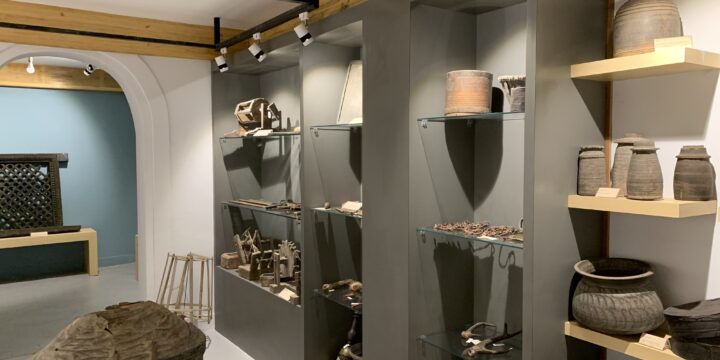
Learning more about Newari culture: Bungamati Cultural Museum
Rajana Maharjan, a full time student has been working as a museum curator in Bungamati Cultural Museum for four years. She has witnessed how the museum has evolved from being unorganized and unmanaged to being one of the most significant places now to showcase the Newari culture and lifestyle. Established in the year 2006, the museum was first initiated by Mr. Daya Ram Maharjan and Mr.Paniet Maharjan members of Maharjan Samaj (Guthi), a traditional social institution. Their main motive behind starting a museum was to put forward the culture of indigenous Newar community and showcase their lifestyles in order to promote it to the upcoming generations. Rajana Maharjan says that the museum first consisted of only few objects which were donated by locals as well as members of Maharjan Samaj…
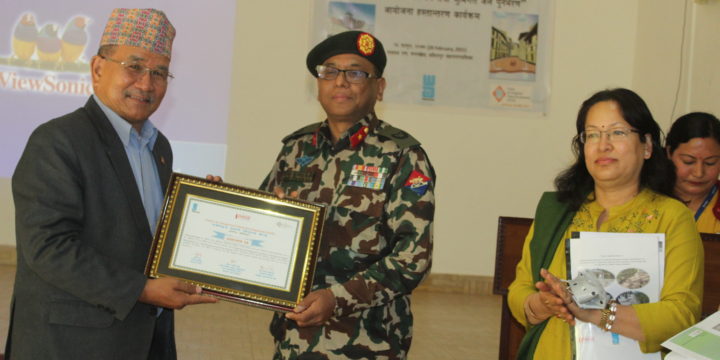
Rainwater harvesting and Groundwater recharge an alternative way to adopt climate change
Prepared by: Sibesh Desar, Monitoring & Evaluation Officer, CIUD Centre for Integrated Urban Development (CIUD) with the financial and technical support from WaterAid Nepal and The Coca-Cola Foundation has successfully implemented Groundwater recharge and rainwater harvesting project in the premises of the Rajdal army barrack, Lagankhel Lalitpur. The project entitled “Rainwater Harvesting and Groundwater Recharge in Lalitpur Metropolitan City: An Integral Process to Address the Increased Water Demand Incorporating Climate Change Adaptation in Urban Water Security” which was started from January 2020 and ends at February 2021, officially announced completion of the all the project activities with project handover program organized on 28 February 2021 at the Rajdal army barrack meeting Hall. Project had constructed 51 groundwater recharge systems that includes filtration chamber and recharge wells. Similarly, project had also…
Revitalizing public spaces: Sacho View Point
Rajana Maharjan a student and a resident of Sacho-tole have witnessed the conversion of a dumping yard to now an eye catching attraction of Bungamati. The construction of the new two-storey view point was then used as a public toilet facility and a dumping site. “Since it was a public property no one took the initiative for maintaining its hygiene and sanitation. This led the location to be one which locals refused to touch”. To use this public space in an effective manner with a proper outcome CUID brought forward a plan to construct a view point in that area. With its 3D design approved and community convinced, the work immediately began. “After we knew that CIUD is bringing up this construction plan, all the locals gathered to help in…
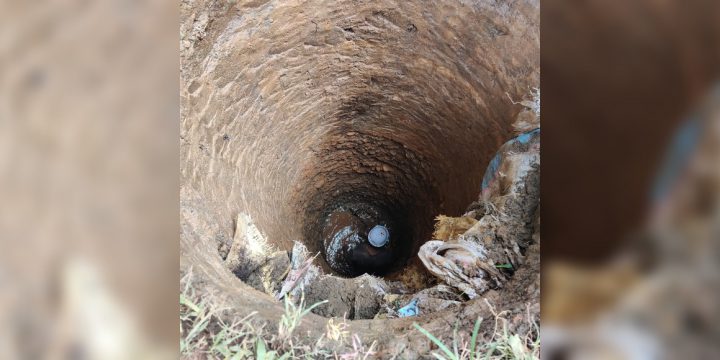
Groundwater recharge using rainwater, a reliable and sustainable system to address increasing urban water demand of Kathmandu Valley
Groundwater has been one of the major sources of water for the people of Kathmandu valley since ages. Stone spouts and wells were commonly used means to get access to the groundwater in the valley. Before the introduction of piped household tap system in the Kathmandu Valley, the majority of people depended on either stone spouts or dug wells to fulfil their water need for household and drinking water purposes. (more…)
